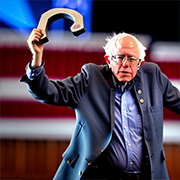|
sullat posted:But what was the government doing in 1931 that turned the tide? I'm not familiar with Hoover's policies to recall anything beyond "balance the budget at all costs" and "save the gold standard". I guess using the army to club unemployed vets is certainly one way to incentivize employment, but other than that, I'm not aware of any helpful government actions until FDR. After all, he took office just as the entire US banking system was cratering and he managed to turn it around. So unless the argument is "the economy just does its thing" I really can't see a way to give Hoover any credit for the recovery. Hoover's ideal was "let this poo poo sort itself out." His attitude was that the government should not get involved with the affairs of the people, economically speaking, at all. In a lot of ways he was the ultimate libertarian. He was also far more concerned with getting reelected than actually doing anything. In a way it was a reflection of the time but on the other side of things you saw a lot of the same problems that you're seeing now. A few people owned basically everything. Gigantic monopolies controlled most major industries. Poverty was rampant and vast swathes of land were owned by the wealthy. Sharecroppers and tenant farmers were the norm in many areas. A depression happened because a lack of financial regulation caused a massive bubble that burst and tanked everything. Businesses were declaring that they'd make product and turn the economy back on if people would actually start buying poo poo again but nobody had any money. The unemployed were being blamed for being unemployed even though the people that owned all the land and factories weren't hiring. Hoover's response was much like the libertarian one now; "well go find a job if you want one so bad." Except that there weren't any. Unemployment got as high as 25%. The major thing that Roosevelt did was, you know, anything at all. Yeah it had its ups and downs but part of the reason people got fond of Roosevelt was that he was pretty honest about the whole thing. His attitude was basically that America was facing a problem that had never been seen before so nobody had the faintest clue what to do about it. So, he'd try poo poo and if that didn't work he'd try some other poo poo. Hoover, rather than dealing with the problems, forced them to leave his back yard with guns. For better or for worse people would much prefer the guy that at least tried something to the guy that called in the artillery and said "gently caress off."
|
|
|
|

|
| # ? Jun 11, 2024 11:52 |
|
sullat posted:But what was the government doing in 1931 that turned the tide? I'm not familiar with Hoover's policies to recall anything beyond "balance the budget at all costs" and "save the gold standard". I guess using the army to club unemployed vets is certainly one way to incentivize employment, but other than that, I'm not aware of any helpful government actions until FDR. After all, he took office just as the entire US banking system was cratering and he managed to turn it around. So unless the argument is "the economy just does its thing" I really can't see a way to give Hoover any credit for the recovery. http://en.wikipedia.org/wiki/Herbert_Hoover#Great_Depression posted:Hoover engaged in many unprecedented public works programs, including an increase in the Federal Buildings program of over $400 million and the establishment of the Division of Public Construction to spur public works planning. Hoover himself granted more subsidies to ship construction through the Federal Shipping Board and asked for a further $175 million appropriation for public works; this was followed in July 1930 with the expenditure of a giant $915 million public works program, including a Hoover Dam on the Colorado River.[103][104] In the spring of 1930, Hoover acquired from Congress an added $100 million to continue the Federal Farm Board lending and purchasing policies. At the end of 1929, the FFB established a national wool cooperative-the National Wool Marketing Corporation (NWMC) made up of 30 state associations. The Board also established an allied National Wool Credit Corporation to handle finances. A total of $31.5 million in loans for wool were made by the FFB, of which $12.5 million were permanently lost; these massive agricultural subsidies were a precedent for the later Agricultural Adjustment Act.[105][106] Hoover also advocated strong labor regulation law, including the enactment of the Bacon-Davis Act, requiring a maximum eight-hour day on construction of public buildings and the payment of at least the "prevailing wage" in the locality, as well as the Norris-LaGuardia Act in 1932. In the Banking sector, Hoover passed The Federal Home Loan Bank Act in July, 1932, establishing 12 district banks ruled by a Federal Home Loan Bank Board in a manner similar to the Federal Reserve System. $125 million capital was subscribed by the Treasury and this was subsequently shifted to the RFC. Hoover was also instrumental in passing the Glass-Steagall Act of 1932, allowing for prime rediscounting at the Federal Reserve, allowing further inflation of credit and bank reserves.[107]
|
|
|
|
Part of Hoover's problem was that his government interventions rested too heavily on volunteerism of the rich and powerful. Hoover did push a lot of money towards programs to help the country be able to do stuff, but that money was controlled by board members from powerful companies who were under no auspices to actually spend it unless they saw fit. Something to tune of $500 million got given to organizations designed to spur construction and innovation, but barely any of it actually got doled out. FDR tried in the beginning to get CEOs and other powerful people on board, but by the end of his First New Deal phase, he realized the problem was the rich CEOs didn't have much reason to do anything, so he had to change tactics. Crazy Joe Wilson fucked around with this message at 11:43 on Jun 13, 2014 |
|
|
|
cheerfullydrab posted:Are you trying to say that the Poles deserved what happened to them? They were asking for it, stealing all our fresh water.
|
|
|
|
And while Hoover did far more than most people realized, he didn't do anything early on. By the time his administration actively attacked the issue, there wasn't enough time for those changes to take effect before the next election cycle. Roosevelt did a lot, but he also benefited from economic moves made before he took office. And Roosevelt's moves were far from perfect. His NIRA, which set prices and wages at above market values, hurt the economy before being struck down a couple of years later.
|
|
|
|
Krispy Kareem posted:I don't know if an unemployment graph really helps much. Well, let's see! quote:Oh hey, it shows that unemployment was 25% when FDR took office and down to <15% before the '37-38 recession. That would actually seem to help a lot! quote:It's tough to determine just how effective Roosevelt's New Deal was. The chart above makes it look like the New Deal saved us all, but those programs didn't start until 1933 while the unemployment rate's climb rapidly decreased in 1932. Obviously Roosevelt accomplished some very important goals. He can be credited with rescuing the banking system as well as employing a whole lot of idle young men (never a good thing to have). However, government interference with the economy takes at least a year to show up. So the improvements in 1934 and 35 may have been Hoover's work as much as Roosevelt's. It's possible. In 1931-1932 Hoover was finally becoming convinced of the necessity of hands-on government action to get the economy moving again, and he made some limited steps in that direction, although the New Deal expanded the approach massively. It may be that the moderation in the rate of GDP loss and rate of job loss in 1933-34 was due in part to what Hoover was doing in '31-'32, but what he was doing was a sort of weak prototype to what the New Deal accomplished later--and the New Deal was considerably more successful in stimulating the economy. The one-year thing is a rule of thumb to compensate for lagging indicators, not an actual law of economics. If the government takes actions that dramatically increase the supply of money in the economy it's not like everybody sits around for a full calendar year before making use of it. In a case like the first year of the Roosevelt administration, where major policy initiatives were rapidly passed to great public fanfare, you'd be looking at a stimulative combination of quickly increasing confidence and concrete changes to the structure of the economy. For example, FDR's rescue of the banking system went live almost as soon as he came into office, and that would have had a huge effect. Also, in the specific case of unemployment, you would also tend to see an immediate improvement within 1933 simply because of early New Deal programs that employed people directly, like the CCC and CWA. The CWA is a particularly obvious example, since it was active from March '33 to March '34 and in that time provided 4 million jobs. And of course all of this is focusing on the 1930s, when in fact policy in the footstep and after the fashion of the New Deal continued through to the early 1960s, encompassing the period of greatest sustained growth in American economic history.
|
|
|
|
EvanSchenck posted:Well, let's see! Banking was a place where Roosevelt had an almost immediate impact and consumer confidence from Roosevelt's election could have boosted economic activity, but it's unlikely it did too much considering unemployment was still 3 to 5 times pre-Depression levels and household money supplies were tight. I don't doubt Roosevelt did more than Hoover to help the country. Where I object is the distribution of credit. Unemployment levels stopped rising before Roosevelt took office and economic progress in 1933 and 34 probably had as much to do with Hoover as FDR.
|
|
|
|
People solely seem to poo poo on Hoover (who does deserve significant credit), but how about Andrew Mellon?
|
|
|
|
Krispy Kareem posted:Banking was a place where Roosevelt had an almost immediate impact and consumer confidence from Roosevelt's election could have boosted economic activity, but it's unlikely it did too much considering unemployment was still 3 to 5 times pre-Depression levels and household money supplies were tight. One of the biggest problem with economics is we don't have a control economy to compare the real economy too. For example, if Hoover had been re-elected, and then failed to solve the banking collapse like FDR did, would the economy have continued its tepid recovery, or would it have collapsed again? Judging from other periods when the financial system collapsed or came close to it, that sort of event does lead to a spike in unemployment and economic hardship. So FDR's handling of the banking collapse after Hoover's failure to contain it certainly means that he deserves most, if not all, of the credit for the subsequent recovery.
|
|
|
|
Modern Day Hercules posted:You make yourself look stupid when you post about counterfactual history like there's some absolute truth to it. There's like a million different ways that could have gone down that don't end up with a worse world. For instance, the Soviet Union tries to hold down the entire European continent like they did the Ukraine in our timeline, except they don't have the resources to do it right so the whole drat house of cards crashes, the USSR ends in the 1950's and now instead of having a bunch of countries in Eastern Europe that are only now overcoming a half century of oppression, we have a bunch of countries in Eastern Europe that never really got a chance to be oppressed in the first place. Would that be a worse world? cheerfullydrab posted:Again, these things were agreed upon in '43, when Roosevelt had at least one card to play: the removal of aid to the Soviet Union. But he never ever did that. He readily agreed to the loving over of Poland and the Polish people when there were few Soviet troops on the ground there and he had something with which to negotiate. Moving Poland to the west a little bit and ethnically cleansing millions of people, including Poles who were citizens of an Allied nation, wasn't a fait accompli. It was something that Roosevelt actively played a part in. Trying to gently caress with Lend-Lease was probably the A+ most assured way to piss off the Soviet Union and convince them that the Capitalists were attempting to stab them in the back, at a time when they were already suspicious that the Second Front hadn't been opened up and Roosevelt was desperately trying to get them to declare war on Japan. As it was, the US managed to get them to declare that open and free elections would be held in the territories they'd liberated from the Nazis, which was the best anyone could hope for without enacting Operation Unthinkable or trying to reach the Vistula themselves. Not to mention the fact that in 1943, the Nazis were still deep in Soviet territory, and by the time they'd actually reached Poland the war only had another 6 months to go in Europe, and cutting Lend-Lease wouldn't have done anything but piss them off further. Arguing that the Soviet domination of Eastern Europe was somehow the fault of Roosevelt is just flat-out a-historical.
|
|
|
|
FAUXTON posted:I've never seen "I shitpost in threads I dont read" put in so few letters before. He could also not know. I didn't until very recently, and I'd consider myself more well-read on the period than most people. The answer, for the record, is the Recession of '37-'38. Which is to say, we're not entirely sure. The two most likely causes are two of the big economic stimulus Alphabet Soup programs, the PWA and WPA, receiving large budget cuts, which neatly explains the reason you enact public stimulus when the economy is down. The other theoretical reason is Corporate America being faced with taxation on retained earnings and deciding to say "No, gently caress You Dad" and choking off the economy in retaliation. A third theory is the tightening of the money supply by the Fed, but that's advanced by the Austrian School which at this point I'm pretty sure is founded on nothing, so. What should be sort of Very Concerning is that both of the two more likely causes can be seen happening very closely paralleled today--lack of and cutting of public stimulus, and Corporate America deciding it wants everything for itself. Redeye Flight fucked around with this message at 11:26 on Jun 14, 2014 |
|
|
|
I heard about a speech made by Strom Thurmond during the dixiecrat campaign of 1948 where he explicitly racial epithets. The clip I heard started with something like "there aren't enough soldiers in the army" or something. Can someone help me narrow this down?
|
|
|
|
gradenko_2000 posted:I heard about a speech made by Strom Thurmond during the dixiecrat campaign of 1948 where he explicitly racial epithets. The clip I heard started with something like "there aren't enough soldiers in the army" or something. Can someone help me narrow this down? http://mije.org/richardprince/news-outlets-using-sanitized-1948-strom-thurmond-quote quote:In 1948, according to the Web site stromwatch.com, which provides audio of the statement, Thurmond said:
|
|
|
|
The good part is that there were enough troops just in the national guard to do it.
|
|
|
|
The South always seems to really underestimate how many troops the federal government has, yes.
|
|
|
|
This is something more recent in history, but I kind of want to learn more about the LA Riots. Having read about it, it seems pretty drat scary in retrospect. Was there any goons that have any sort of memory of the event itself? I was only 3 at the time, so for me it's way too early to really have any knowledge of.
|
|
|
|
Berke Negri posted:The South always seems to This is more accurate IMO.
|
|
|
|
I just want to plug in this documentary series on Native American series I'm currently watching. http://www.youtube.com/watch?v=mOsYYbw_kE4 It's pretty great so far, at times inspiring and heartbreaking. It seems pretty accurate too, what with all the quotes from historical Native American leaders and modern native historians and such. There should totally be a high-budget HBO show about the Haudenosaunee during the French and Indian Wars and Revolutionary War. Or maybe something on the life of Tecumseh.
|
|
|
|
Can it have a white protagonist?
|
|
|
|
VideoTapir posted:Can it have a white protagonist? Like that Denzel Washington biopic of Touissant L'Overture?
|
|
|
|
Frostwerks posted:Like that Denzel Washington biopic of Touissant L'Overture? hahaha what?
|
|
|
|
This is the American History thread, and I hate people pitching what they think would make the ULTIMATE HBO MINISERIES, but I'd kill for an epic Haitian Revolution series.Volkerball posted:That would be pure comedy. US foreign policy is still poo poo, but drat have we come a long way. Echo Chamber fucked around with this message at 07:11 on Jul 19, 2014 |
|
|
|
Echo Chamber posted:This is the American History thread, and I hate people pitching what they think would make the ULTIMATE HBO MINISERIES, but I'd kill for an epic Haitian Revolution series. That would be pure comedy. US foreign policy is still poo poo, but drat have we come a long way.
|
|
|
|
Echo Chamber posted:huh? VVV The essence of humor is incongruity or irony. America Inc. fucked around with this message at 07:33 on Jul 19, 2014 |
|
|
|
Negative Entropy posted:The Haitian Revolution was founded in the Enlightenment ideals that inspired the American and French Revolutions, and a logical consequence of the proposition that all men are created equal, yet the US government and Revolutionary France tried to suppress the rebellion because it was slaves rebelling against their masters.
|
|
|
|
The reason it would be pure comedy is because everyone and their cousin gets involved in the Haitian Revolution at SOME point from 1791-1804. It would be impossible to remember who was on whose side, and who any of the characters were because it is such a complex mess.
|
|
|
|
Echo Chamber posted:I know that; I was trying to figure out why Volkerball finds the Haitian Revolution funny. Not to insult your intelligence on what you know or don't, but I'm going to explain this in depth to keep this post together. Under Washington, there were tremendous fears about slave revolts in the US within the administration, and Haiti signaled a potential spark to them. This, and a desire to pay the debt the US owed the French for their aid in the American Revolution led to the US authorizing money and weapons to be sent to the French slave-owners to help crush the rebellion right from the get go. This lasted until Adams administration, when there was nearly a complete 180. Louverture, who's uprising the US had just fought, became an ally of the US. The two exchanged diplomats and the US even provided naval support for Louverture in the War of Knives. Adams wasn't not concerned by the idea of slave revolts, but it wasn't a determining factor in his foreign policy, obviously. And contrary to the previous sentiment of aiding the French in good faith, Adams wanted to stick it to them due to what was perceived as reckless, French-supported privateering in the Caribbean, commonly against North American ships. This lasted for Adams one term. Then in came Jefferson, and suddenly, tensions over the US providing French enemies with weapons began to cool down, the US' friendly terms with San Domingue fell apart, and the US is approving French attempts to try and reclaim Saint-Domingue, which they had just helped Louverture take not 3 years before! The whole war is
|
|
|
|
And that's why a hypothetical series would be awesome. Audiences can see Toussaint skillfully manipulate his own men, the French Republic, petit blancs, grand blancs/royalists, the British, the Spanish, and the Americans as the global political climate changes. There are battles, shifting alliances, and court intrigue. We can get complex narratives around the cynical decisions Haitian Revolutionaries had to make to achieve their goals, and how those decisions ended up affecting Haiti for both better and worse for years. The show could be seen as "ahead of the curve" because it's specifically about how former slaves ended slavery, and totally avoids "white savior" readings. It could also further challenge traditional narratives American audiences have been spoon-fed. There's very little way around showing how Jefferson was deeply invested in preserving slavery. Robespierre, traditionally vilified for the Reign of Terror, doesn't come off looking too terrible. I know I'm getting off topic, and there's way more I could elaborate in such a pitch... Getting back on subject, Jefferson hosed the Haitians over, yet stood to benefit from their success anyway with the acquisition of Louisiana from Napoleon... which expanded slavery territory in the U.S. Echo Chamber fucked around with this message at 05:02 on Jul 20, 2014 |
|
|
|
Echo Chamber posted:Getting back on subject, Jefferson hosed the Haitians over, yet stood to benefit from their success anyway with the acquisition of Louisiana from Napoleon... which expanded slavery territory in the U.S. And it gave us a sufficiently lovely place to send our own indigenous population we were oppressing.
|
|
|
|
FuzzySkinner posted:This is something more recent in history, but I kind of want to learn more about the LA Riots. Do you mean the Rodney King Riots? I wasn't much older, only 5 or so at the time. Shortly afterward my dad bought a gun then almost shot a hole in his foot while cleaning it then sold it back at a significant loss when my mom found the bullet hole in the floor. White people just went a little nutty afterwards.
|
|
|
|
Grand Prize Winner posted:Do you mean the Rodney King Riots? I wasn't much older, only 5 or so at the time. Shortly afterward my dad bought a gun then almost shot a hole in his foot while cleaning it then sold it back at a significant loss when my mom found the bullet hole in the floor. Your dad cleaned a gun while it was loaded? poo poo, my father did not teach me a whole lot as I was growing up, but by god he made it his duty as a police officer with children to teach me and my sister gun safety and to never ever ever ever clean a gun while it's loaded.
|
|
|
|
Star Man posted:Your dad cleaned a gun while it was loaded?
|
|
|
|
Miltank posted:hahaha what? Some famous black actor in Hollywood's been trying to get a L'overture biopic done (pretty sure it's denzel) and the studios basically said, awesome, cool idea but um is there anyway we can have a white protagonist?
|
|
|
|
Frostwerks posted:Some famous black actor in Hollywood's been trying to get a L'overture biopic done (pretty sure it's denzel) and the studios basically said, awesome, cool idea but um is there anyway we can have a white protagonist? It's actually Danny Glover.
|
|
|
|
Frostwerks posted:Some famous black actor in Hollywood's been trying to get a L'overture biopic done (pretty sure it's denzel) and the studios basically said, awesome, cool idea but um is there anyway we can have a white protagonist? Edit beaten. I'd prefer a prestige historical miniseries over a film.
|
|
|
|
Echo Chamber posted:Danny Glover, actually. All I want is a Blood Meridian HBO adaptation. Do not make a loving film, the MPAA will eat you alive. gently caress the MPAA. There's probably more rape and murder in game of thrones anyway.
|
|
|
|
If we're talking about western miniseries, I want a Hell on Wheels-type show but with Chinese people, rather than the "we're only doing the Union Pacific Railroad" whitewash.
|
|
|
|
Echo Chamber posted:If we're talking about western miniseries, I want a Hell on Wheels-type show but with Chinese people, rather than the "we're only doing the Union Pacific Railroad" whitewash. Watch Deadwood. BM is another beast entirely.
|
|
|
|
Echo Chamber posted:If we're talking about western miniseries, I want a Hell on Wheels-type show but with Chinese people, rather than the "we're only doing the Union Pacific Railroad" whitewash. Canada's got you covered: https://www.youtube.com/watch?v=o87MgkGAqeU
|
|
|
|

|
| # ? Jun 11, 2024 11:52 |
|
FuzzySkinner posted:This is something more recent in history, but I kind of want to learn more about the LA Riots. LA was a madhouse, but even way out here in Atlanta there was some serious poo poo. I remember watching helicopter footage of kids from the black colleges tearing up storefronts near their campuses. A friend's father got the unfortunate distinction of Atlanta's worst beaten when he was caught outside the CNN center by a passing mob. It was odd watching the cops not do anything. I guess there's something to be said for letting rioters break some poo poo and then hoping everything peters out. Sucks for the people whose buildings, cars, heads are getting bashed in though.
|
|
|






































 Yes, it's like a lava lamp.
Yes, it's like a lava lamp.